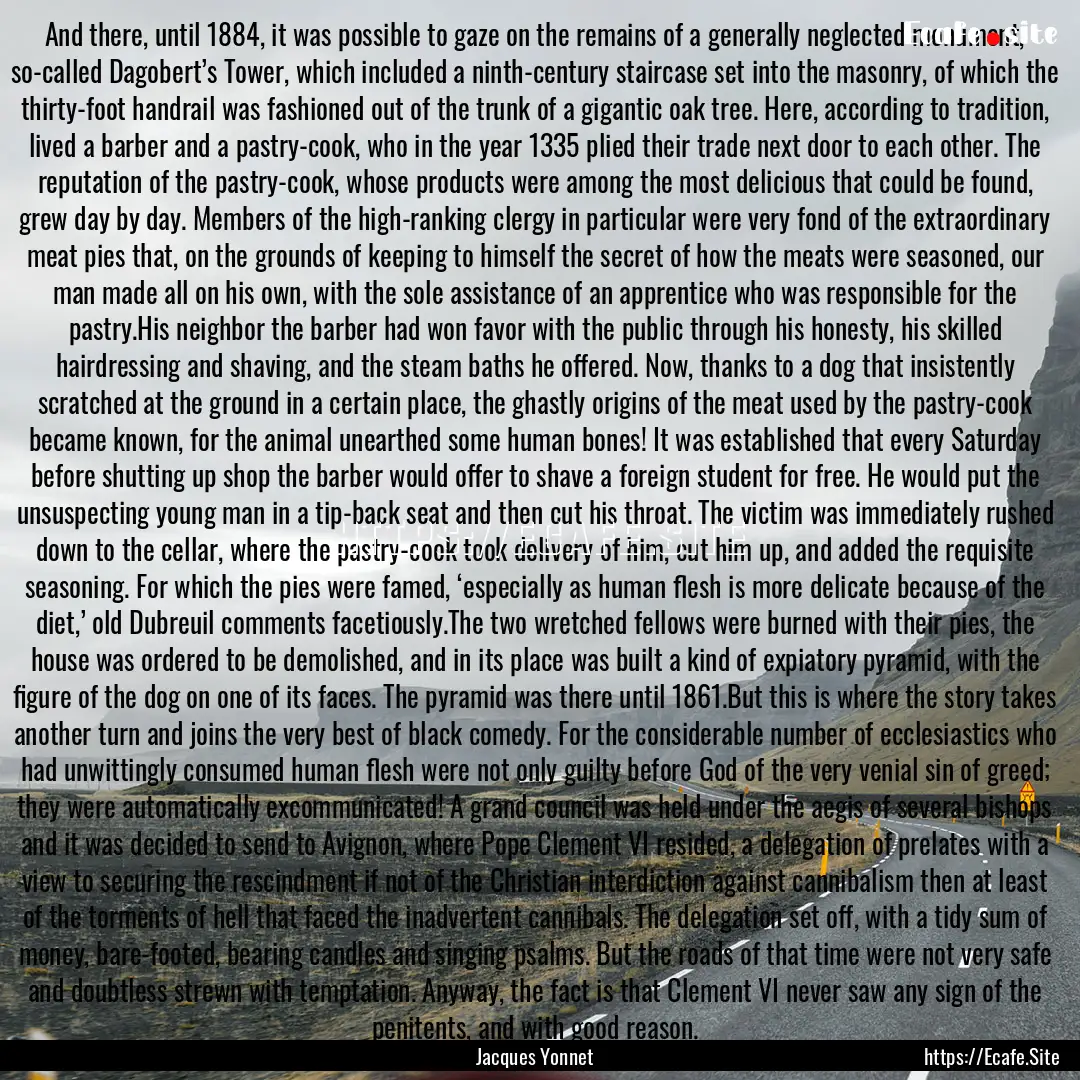
Report, if you have a problem with this page“ And there, until 1884, it was possible to gaze on the remains of a generally neglected monument, so-called Dagobert’s Tower, which included a ninth-century staircase set into the masonry, of which the thirty-foot handrail was fashioned out of the trunk of a gigantic oak tree. Here, according to tradition, lived a barber and a pastry-cook, who in the year 1335 plied their trade next door to each other. The reputation of the pastry-cook, whose products were among the most delicious that could be found, grew day by day. Members of the high-ranking clergy in particular were very fond of the extraordinary meat pies that, on the grounds of keeping to himself the secret of how the meats were seasoned, our man made all on his own, with the sole assistance of an apprentice who was responsible for the pastry.His neighbor the barber had won favor with the public through his honesty, his skilled hairdressing and shaving, and the steam baths he offered. Now, thanks to a dog that insistently scratched at the ground in a certain place, the ghastly origins of the meat used by the pastry-cook became known, for the animal unearthed some human bones! It was established that every Saturday before shutting up shop the barber would offer to shave a foreign student for free. He would put the unsuspecting young man in a tip-back seat and then cut his throat. The victim was immediately rushed down to the cellar, where the pastry-cook took delivery of him, cut him up, and added the requisite seasoning. For which the pies were famed, ‘especially as human flesh is more delicate because of the diet,’ old Dubreuil comments facetiously.The two wretched fellows were burned with their pies, the house was ordered to be demolished, and in its place was built a kind of expiatory pyramid, with the figure of the dog on one of its faces. The pyramid was there until 1861.But this is where the story takes another turn and joins the very best of black comedy. For the considerable number of ecclesiastics who had unwittingly consumed human flesh were not only guilty before God of the very venial sin of greed; they were automatically excommunicated! A grand council was held under the aegis of several bishops and it was decided to send to Avignon, where Pope Clement VI resided, a delegation of prelates with a view to securing the rescindment if not of the Christian interdiction against cannibalism then at least of the torments of hell that faced the inadvertent cannibals. The delegation set off, with a tidy sum of money, bare-footed, bearing candles and singing psalms. But the roads of that time were not very safe and doubtless strewn with temptation. Anyway, the fact is that Clement VI never saw any sign of the penitents, and with good reason. ”

Jacques Yonnet
From : Paris Noir: The Secret History of a City



